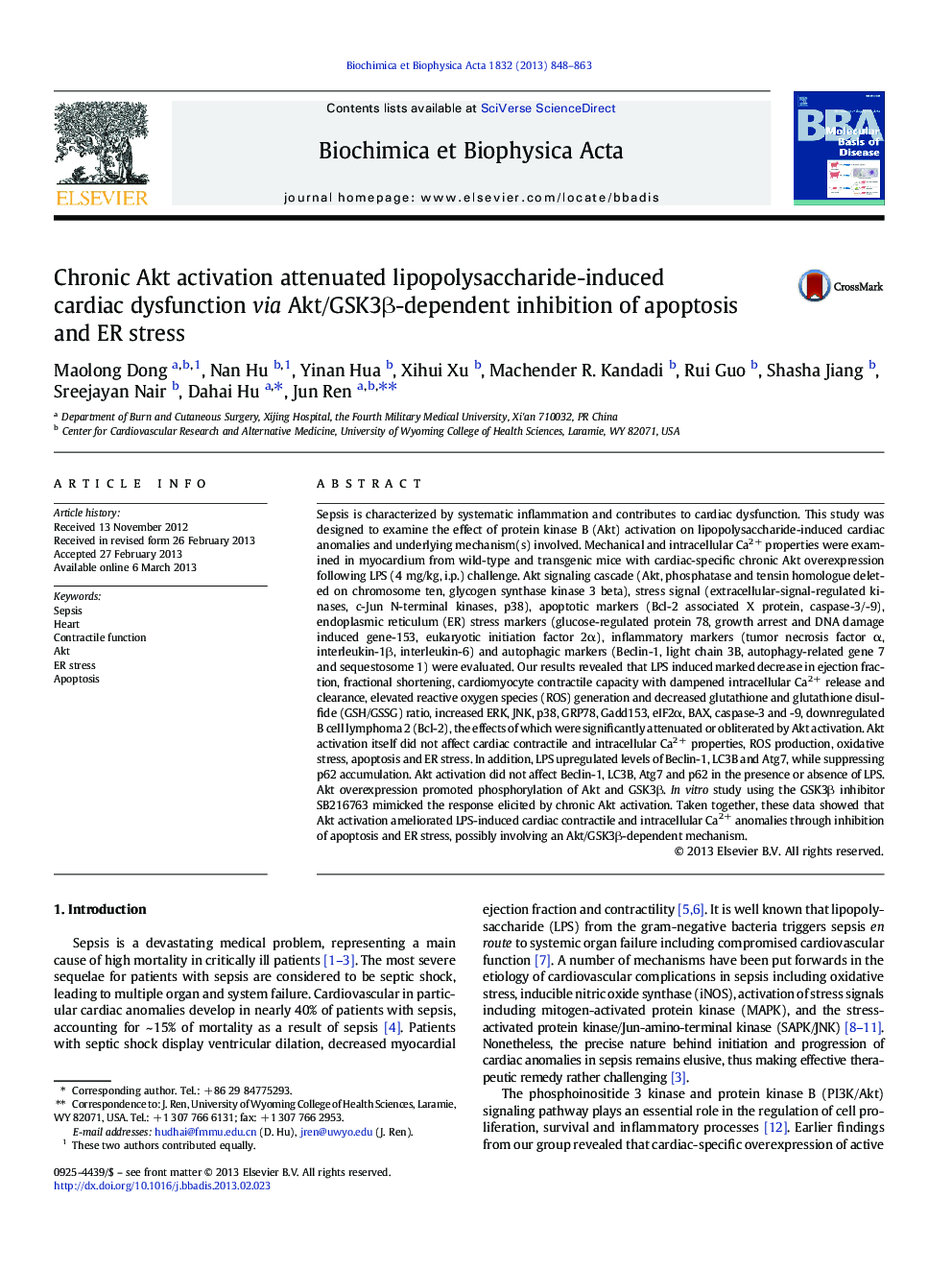| Article ID | Journal | Published Year | Pages | File Type |
|---|---|---|---|---|
| 1904855 | Biochimica et Biophysica Acta (BBA) - Molecular Basis of Disease | 2013 | 16 Pages |
•We examine the effect of Akt activation in sepsis-induced cardiomyopathy.•Chronic Akt activation alleviates LPS-induced cardiac mechanical defect.•Akt activation inhibits apoptosis and ER stress in sepsis.
Sepsis is characterized by systematic inflammation and contributes to cardiac dysfunction. This study was designed to examine the effect of protein kinase B (Akt) activation on lipopolysaccharide-induced cardiac anomalies and underlying mechanism(s) involved. Mechanical and intracellular Ca2 + properties were examined in myocardium from wild-type and transgenic mice with cardiac-specific chronic Akt overexpression following LPS (4 mg/kg, i.p.) challenge. Akt signaling cascade (Akt, phosphatase and tensin homologue deleted on chromosome ten, glycogen synthase kinase 3 beta), stress signal (extracellular-signal-regulated kinases, c-Jun N-terminal kinases, p38), apoptotic markers (Bcl-2 associated X protein, caspase-3/-9), endoplasmic reticulum (ER) stress markers (glucose-regulated protein 78, growth arrest and DNA damage induced gene-153, eukaryotic initiation factor 2α), inflammatory markers (tumor necrosis factor α, interleukin-1β, interleukin-6) and autophagic markers (Beclin-1, light chain 3B, autophagy-related gene 7 and sequestosome 1) were evaluated. Our results revealed that LPS induced marked decrease in ejection fraction, fractional shortening, cardiomyocyte contractile capacity with dampened intracellular Ca2 + release and clearance, elevated reactive oxygen species (ROS) generation and decreased glutathione and glutathione disulfide (GSH/GSSG) ratio, increased ERK, JNK, p38, GRP78, Gadd153, eIF2α, BAX, caspase-3 and -9, downregulated B cell lymphoma 2 (Bcl-2), the effects of which were significantly attenuated or obliterated by Akt activation. Akt activation itself did not affect cardiac contractile and intracellular Ca2 + properties, ROS production, oxidative stress, apoptosis and ER stress. In addition, LPS upregulated levels of Beclin-1, LC3B and Atg7, while suppressing p62 accumulation. Akt activation did not affect Beclin-1, LC3B, Atg7 and p62 in the presence or absence of LPS. Akt overexpression promoted phosphorylation of Akt and GSK3β. In vitro study using the GSK3β inhibitor SB216763 mimicked the response elicited by chronic Akt activation. Taken together, these data showed that Akt activation ameliorated LPS-induced cardiac contractile and intracellular Ca2 + anomalies through inhibition of apoptosis and ER stress, possibly involving an Akt/GSK3β-dependent mechanism.
